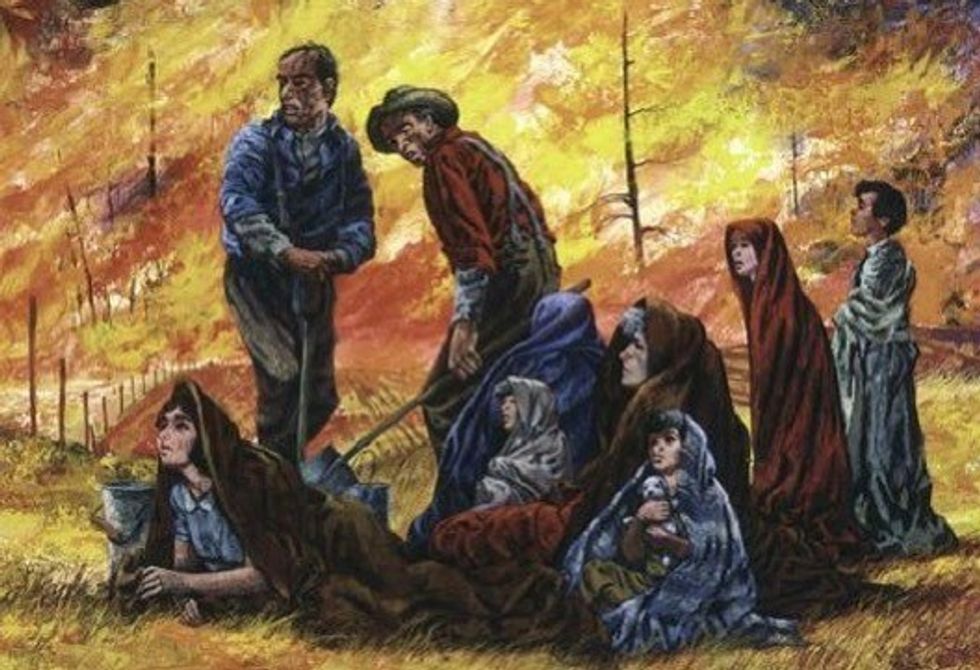The Peshtigo fire and the Chicago fire.
Two horrific events. One lost to history.
On October 8, 1871, the most catastrophic fire in US history swept through the town of Peshtigo, Wisconsin. It obliterated the entire town and spread to nearby counties, including 17 other towns, killing roughly 1,700 people, burning 2,400 square miles of land, and even jumping across the Bay. Within hours, nothing was left. People were burned to death, land was destroyed and those who survived were left with nothing to return to. Yet, on the same day, the Great Chicago Fire broke out too. Although the Peshtigo fire saw greater losses in terms of life and the destruction of land, it was lost to history as focus was averted to Chicago in the immediate aftermath.
Despite being forgotten, the Peshtigo fire forced officials to adapt forestry techniques and forest maintenance methods in the region.
Although there were a number of simultaneous events which sparked the Peshtigo fire, the main cause was the lack of forest maintenance at the time. This was exacerbated by the amount of slash on the forest floor. This buildup was comprised of scraps of branches, bark, and leaves, which became highly flammable and provided ample burning material for the fire. In combination with high-speed winds, the fire had constant fuel to burn across the forest and the extreme winds aided its jump across the Bay.
It was likened to a tornado of flames.
At first, the cause was not understood as human error. In the following years, as officials understood the cause was due to improper maintenance and human carelessness, forests have since been managed to ensure this does not occur again. Along with education, there has not been a forest fire of this magnitude in the Midwest since 1871.
These changes did not take full effect until the 20th century, but have proven to be an invaluable asset in defending the region from another destructive fire of the same extent. Although fires continued to ravage the region for much of the 19th and 20th centuries, improvement was the only way forward. Wisconsin began by hiring fire wardens who could then hire firefighters. Forest rangers were later appointed to maintain the forests and a headquarters for forest protection was established at Trout Lake. As the protection of forests became more sophisticated, lookout towers and ranger stations were erected to ensure greater organization of fire protection protocols.
In addition to education, safety protocols and the clearing of fallen leaves and trees, fire lanes in forests have also proven to be an invaluable asset. By clearing lanes in forests, fires are unable to spread as quickly as in an enclosed area. Moreover, with the continued maintenance of the undergrowth and understanding of the ecology of forests, the state got ahead of the issue and ensured maintained forests to avoid future wildfires.



















